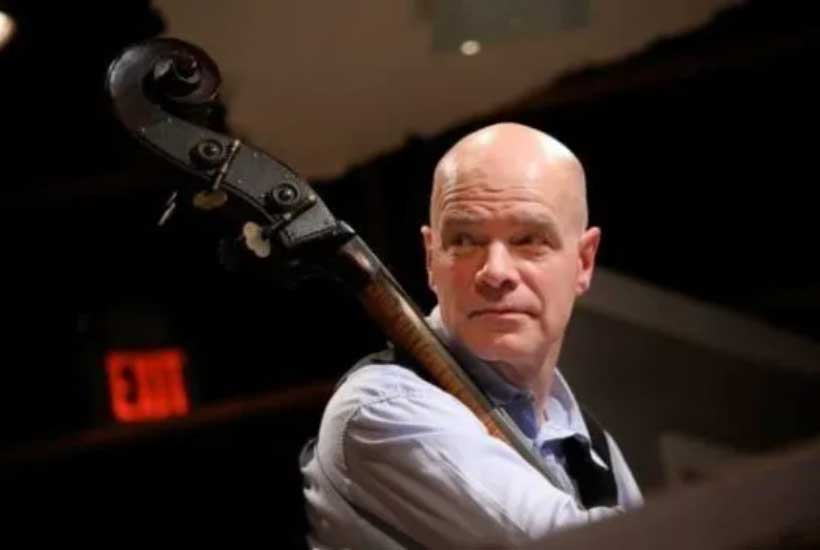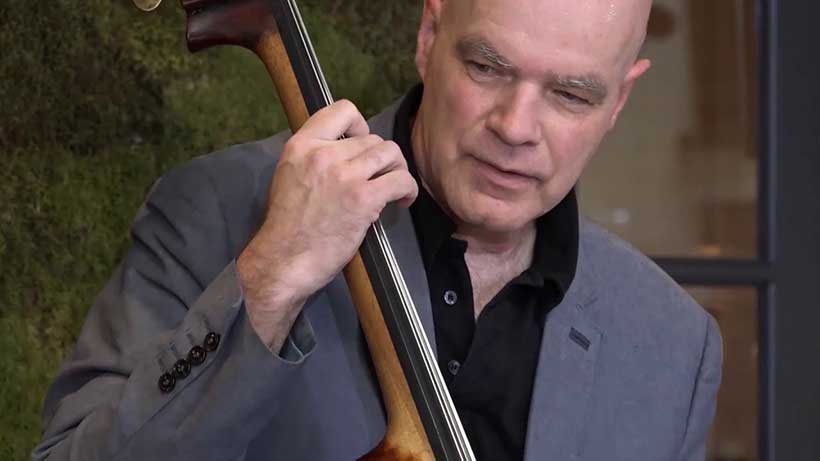June 30, 2022
Interview with Joris Teepe։ The music then comes to you

Jazz interview with contrabassist Joris Teepe. An interview by email in writing.
JazzBluesNews.com: – First let’s start with where you grew up, and what got you interested in music?
Joris Teepe: – I grew up in The Netherlands in a family that never heard of jazz. In the family where only exposed to classical music, and in high school I learned about pop, soul, ska, funk, etc. I had classical piano lessons as a child and didn’t know about jazz until later. I picked up the electric bass at age 17 and started on the acoustic at age 20.
JBN: – How did your sound evolve over time? What did you do to find and develop your sound?
JT: – My sound is a challenge every day. You never know what acoustics you get, what amplification or microphone. I’m lefty, so I always bring my own instrument, and I bring my DPI microphone and the first model of the Realist pick up.
JBN: – What practice routine or exercise have you developed to maintain and improve your current musical ability especially pertaining to rhythm?
JT: – Listening to my heroes and recoding my gigs and listen to it very critical. This will tell me what I need to practice.
JBN: – How to prevent disparate influences from coloring what you’re doing?
JT: – I don’t know what you mean by ‘disparate’, but my goal is to play with musicians that inspire me and that situation is always fun.
JBN: – How do you prepare before your performances to help you maintain both spiritual and musical stamina?
JT: – Again, performing with people that inspire me helps to be in good spirit. When I’m feeling good it gives me confidence and that leads to the best results.
JBN: – What’s the balance in music between intellect and soul?
JT: – In my early years I was focused very much on getting the basics together by learning harmony, rhythm, scales, technical stuff, classical exercises, memorizing jazz standards, so perhaps you call this the intellect. It got me very far, but after 10 years living in New York I joined the group of Rashied Ali and stayed with him for 9 years. He showed me how the emotional side (soul?) is creating the music (over intellect or technique). The music then comes to you, there is no need to search for it.
JBN: – There’s a two-way relationship between audience and artist; you’re okay with giving the people what they want?
JT: – I’m not playing for myself. The point is to offer this to the audience (either live or on a release). Hopefully I touch people in a positive way.
JBN: – Please any memories from gigs, jams, open acts and studio sessions which you’d like to share with us?
JT: – I have great memories from recording with Bill Cosby for his shows, with Benny Golson and with Rashied Ali. Also performing with Sonny Fortune was very spiritual.
JBN: – How can we get young people interested in jazz when most of the standard tunes are half a century old?
JT: – Great art is of all times and is enriching. How can you not like Michelangelo, Rembrandt or Picasso? What about Beethoven, Bach or Mozart? So how can you not appreciate Miles, Coltrane or Monk? It’s a matter of educating people to have an open mind for music and art. I do a lot of teaching.
JBN: – John Coltrane said that music was his spirit. How do you understand the spirit and the meaning of life?
JT: – I think nobody knows the meaning of life. Various religions like to hold on to different scenarios, but I have no preferred religion. Music is certainly spiritual for me and makes me feel that I do something meaningful with my life.
JBN: – If you could change one thing in the musical world and it would become a reality, what would that be?
JT: – If I could bring Miles and Dizzy back to life … and get an opportunity to play with them. That would be awesome. Or another change could be that pop music goes forward to using real instruments and musicians instead of computers.
JBN: – Who do you find yourself listening to these days?
JT: – I’m always open to discover and learn more. Some classics that I still listen to and are milestones in my development are many recordings with Ray Brown, with Wes Montgommery and anything with Miles Davis. Also Steely Dan, Jaco Pastorius and Steve Wonder have been a big influence.
JBN: – What is the message you choose to bring through your music?
JT: – My music needs to feel fresh and I like to create something that gets people’s attention and possibly makes them feel something, whether it’s groovy, it swings or is spacy. I love composing and arranging and these are tools I use to be creative.
JBN: – Let’s take a trip with a time machine, so where and why would you really wanna go?
JT: – I’m ok right here right now.
Interview by Simon Sargsyan

